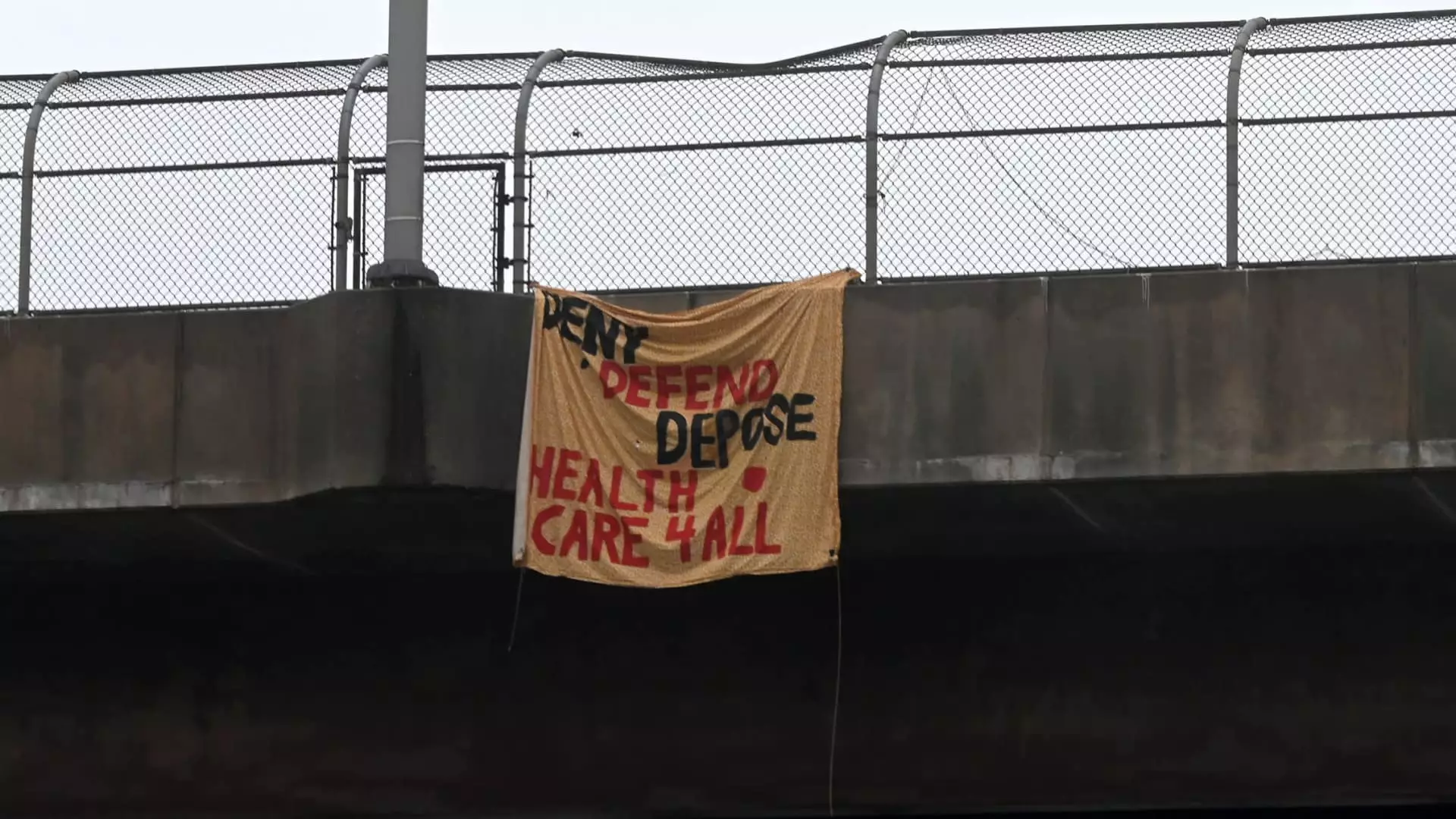The recent tragedy involving the fatal shooting of Brian Thompson, CEO of UnitedHealth Group’s insurance division, has not only shocked the health care industry but also sent major insurance stocks into a significant downward spiral. Since last Tuesday, shares in key players such as UnitedHealth, CVS Health, and Cigna have plummeted by over 6%. These performance declines reflect broader unease among investors, sparked by a sudden surge of negative public sentiment regarding health insurers. Thompson, who led the largest private payer of health insurance benefits in the United States at the age of 50, was shot outside a hotel in midtown Manhattan, a shocking event that reverberated far beyond just the individual incident.
A Motivated Critique of the Health Care System
Luigi Mangione, accused of the fatal shooting, has been described as a critic of the health care industry, an opinion echoed by numerous Americans online following the incident. Investigative reports indicate that Mangione actively expressed disdain toward the practices of health insurance providers, including UnitedHealthcare. This criticism is not unfamiliar in the dialogue surrounding U.S. health care; many Americans share frustrations over complicated policies, denied claims, and spiraling costs associated with both premiums and out-of-pocket expenses. With the event capturing national attention, it has reignited debates on the ethical frameworks surrounding insurers’ operational models.
The immediate reaction from investors, which saw a drop in stock performance across leading health insurance companies, reflects a deeper concern regarding the public perception of the industry. Jared Holz, a health-care equity strategist at Mizuho, noted that the weight of the negative rhetoric surrounding the killing has compelled investors to question their long-term commitment to these stocks. Many wonder whether the rising scrutiny of health insurers will undermine profitability and shareholder confidence, which could lead to a more significant reckoning for the industry at large.
Despite such investor concerns, Holz believes that this current backlash is likely to be temporary. He outlines that the industry has faced criticism in the past and has often managed to weather the storm without making substantial changes to their policies or practices. The pressures exerted by public sentiment and regulatory actions may not be enough to prompt immediate reforms or shifts in business strategies, leaving investors to question the sustainability of their interests in these stocks.
Legal Consequences and Broader Impacts
On a legal front, Mangione has been charged with multiple crimes, including second-degree murder, and remains in custody as the case progresses. His educational background—being a private-school valedictorian and an Ivy League graduate—has added a complex layer of narrative surrounding the incident. Not only is the case noteworthy due to its violent nature, but it also invites questions about the societal factors that drove Mangione to such an extreme act. As authorities continue to unravel the motives, his written critiques of the health care industry have raised alarms about how deeply society has come to regard health insurers.
Despite the calamity, Holz remains skeptical about any proactive measures being taken by these companies to address the underlying issues that prompted such a reaction. As industry players grapple with the aftermath of this event, it becomes increasingly clear that the dynamics of health care in America remain fraught with complications.
While it may be premature to predict lasting changes in the insurance landscape, this tragic event has unequivocally shone a light on the deep-seated discontent that many individuals feel towards their health care providers. As calls for reform grow louder, the insurance industry faces an urgent need to engage with these discussions meaningfully. They must consider not only their financial health but also their ethical responsibilities toward patients and the broader community.
The intersection of violence and public opinion in the health care industry is an uncomfortable space. The fallout from this incident could serve as a catalyst for accountability and reform, and the industry’s response in the coming months will undoubtedly be scrutinized. Investors, too, must navigate this turbulent landscape, where personal stories and corporate profits often collide dramatically. Only time will tell if this event will reshape policies and public perception, but its impact on stock performance and investor confidence is already evident.


Leave a Reply